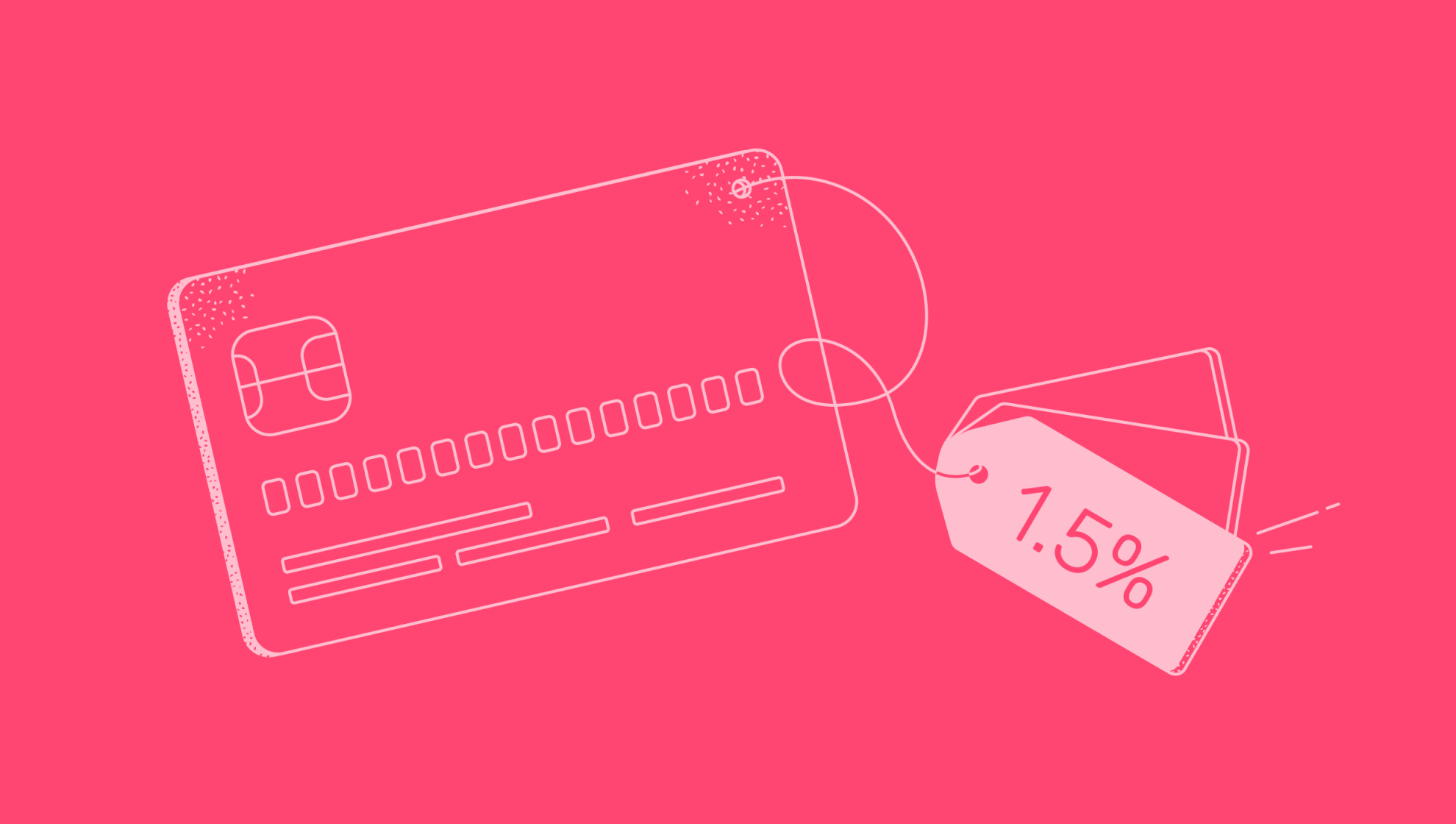Are credit cards pricing themselves out of the SaaS market?

Last editedApr 20213 min read
Why US SaaS businesses should pay attention to the credit card fee increases in Europe. What it means for SaaS companies doing business internationally, how to avoid paying more credit card fees.
The world of credit cards in the UK is in turmoil – and US SaaS businesses should pay close attention.
The EU caps the credit and debit card interchange fees charged by networks like Visa and Mastercard, no matter what the sector or type of transaction. But on January 1, 2021, Brexit meant that those rules no longer applied to the UK.
First out of the traps was Mastercard, who have announced an increase to their interchange rates from October 2021 on UK-to-EU online payments from 0.3% to 1.5% - a staggering increase of 400%.
Visa – with over 70% of the UK card market - is believed to be following suit, although they have not formally announced their fee structure.
Why should this matter to a US SaaS business?
Well, first, the numbers are extraordinary. Margin is everything in SaaS; and a 1.2% gross cost increase is significant. The UK-to-EU example warns that the card providers wield exceptional power.
But there are subtle points.
First, in the UK, there have been calls for regulators to crack down on ‘profiteering’ by card schemes. However, regulators generally only step in when consumers shout loud enough. And Mastercard have already worked to defuse that bomb, stating “Interchange is not a consumer-facing cost but the fees paid between merchants and banks for the provision of payments. Consumers should not feel any impact of changes in interchange fees.” High card fees for online services is a problem which is unlikely to attract undue regulatory attention, leaving merchants out of pocket.
Money getting lost in the black box
It’s even more unlikely to attract significant attention from regulators because the card schemes can point to the fact that most fees levied are passed on to banks and the card issuer community. And this demonstrates the second issue with credit cards: the value chain is long and complicated. As most merchants know, between them and the customer on every transaction sit the card issuer, acquiring banks, payment gateways, processors and often other service providers.
Not only does that mean that each participant in this chain must cover their costs at the merchant’s expense, it also means that it is far too easy for blame – in the event of a price hike like this – to be comfortably diffused along this complex and flabby chain of technologies. Everyone can pass the buck further into the ‘black box’ of payments, and nobody needs to take responsibility.
Credit cards are already expensive enough: take failed payments, to which credit cards are particularly prone. A recent report from analysts, Forrester, surveyed US payment decision-makers. It found that a median 7%-9% of credit card payments had failed in the past 12 months (indeed an unlucky 4% of businesses reported 15%-20% of credit card payments failing). Forrester states that “This results in high costs of recovery (16% to 20% of the average payment size); bad debt (20% or more of failed payments for over a third of US B2B business leaders); customer churn and lower profitability.”
That’s of little solace to the SaaS business, seeking an intelligent but economical payment solution. With credit cards, fees are high, fails are high, and together they are a burden which few businesses can afford to shoulder – and for which there is no recourse.
No mercy for the US
US businesses have so far escaped an increase in interchange fees – but only for now.
The major card networks have both trailed significant fee hikes, despite the carnage wreaked by the pandemic on merchants across the US. With little or no income from traditional work practices, many businesses have closed, struggled on despite heavy overheads, or refactored their operating models on the fly – with margins being squeezed or compromised completely during the transition. One of those transitions has been the move to online. Many wholesalers, for example, have created online retail offers from scratch. A key beneficiary of that move? The credit card networks – who have reaped the reward of entirely new classes of fee income.
So it would be hard to say that the card networks have had ‘a bad pandemic’. But their mooted price increases are only being stalled until 2022; with Visa telling Bloomberg that “Visa is committed to maintaining stability in our payments system and will not make any future rate changes in the U.S. for another year while the economy recovers.”
It seems that the major card networks are determined not to give their hard-pressed US merchants any ground. But it doesn’t have to be that way. Most businesses have taken the pandemic as an opportunity to reassess every part of their operations; and payment strategy belongs on that agenda. There are plenty of alternatives to cards.
Bank-to-bank payments like bank debit (aka ACH debit), for example, suffer from none of these issues. There are fewer parties in the transaction chain, reducing the cost. They are less prone to failures than credit cards, reducing the expense (often a dead loss in the case of bad debt) of chasing payments. And whilst those Visa and Mastercard logos are familiar worldwide, users also deeply trust their own banks: bank debit is as trusted as a customer’s own bank account. Thanks to that trust, in many countries, particularly across Europe, bank debit is the preferred way to pay.
As we emerge from the pandemic, merchants who have struggled through its challenges deserve better than to face fee hikes of 400%. And in the SaaS world, offering another payment method won’t demand more of the carefully recruited customer – it’s just another option on your checkout page. It’s time to go beyond cards, to options which are simple for customers and fair for merchants.

